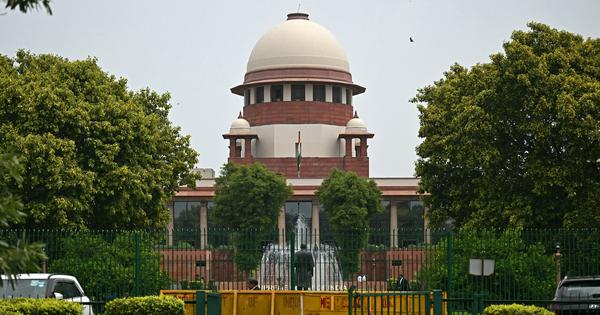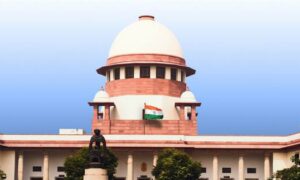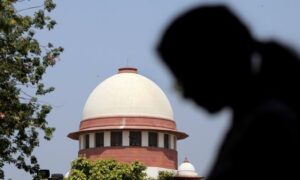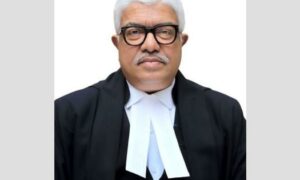
The Supreme Court on Thursday dismissed a petition filed by the Telangana government against an interim order issued by the Telangana High Court staying an increase in reservation for Other Backward Classes in the upcoming local body elections in the state to 42%, Live Law reported.
A bench of Justices Vikram Nath and Sandeep Mehta also said that the High Court must decide the main matter on merits and not be influenced by the dismissal of the petition filed by the state government, Bar and Bench reported.
On October 9, the High Court stayed the state government order increasing the reservation. It directed the Congress government in the state to file its counter affidavit within four weeks and granted two weeks’ time to the petitioners to file their objections thereafter.
It then listed the case for further hearing after six weeks.
The gram panchayat elections in the state are will be held in three phases on October 31, November 4 and November 8. The Mandal Parishad Territorial Constituency and Zilla Parishad Territorial Constituency polls are scheduled for October 23 and October 27.
The stay on October 9 came more than a month after the state government passed the 2025 Telangana Municipalities Third Amendment Bill and the 2025 Telangana Panchayat Raj Third Amendment Act on August 31 to lift the 50% ceiling on caste-based reservations in local bodies.
The Acts had been awaiting the governor’s assent.
The move had paved the way for 42% reservations to Other Backward Classes in local body polls and breached the 50% limit on reservations set by the Supreme Court in 1992, bringing the total quotas for the Scheduled Castes, the Scheduled Tribes and Other Backward Classes in Telangana to 67%.
On September 26, the state government issued an order providing 42% reservation to Other Backward Classes in seats and positions in the local bodies.
Several petitions were filed in the High Court challenging this increase in the reservations.
The state government moved the Supreme Court after the High Court issued a stay on the increase.
During the proceedings in the Supreme Court on Thursday, the bench asked advocate Abhishek Manu Singhvi why the increase in reservation was not brought in before the elections were notified, Live Law reported.
In response, Singhvi said that the governor had kept the bill pending without granting assent.
The bill also became a law based on “deemed assent”, he said, referring to Supreme Court’s verdict in the Tamil Nadu governor case.
In April, the Supreme Court had held that Tamil Nadu Governor RN Ravi’s decision to withhold assent to 10 bills, some of which were pending since January 2020, and refer them to the president after they were re-enacted by the Assembly was “illegal and erroneous”.
The judgement had also introduced the concept of “deemed assent” in cases of prolonged inaction, allowing pending bills to be considered approved.
At the hearing on Thursday, Singhvi told the bench that a stay had been secured on the increase without making any challenge to the legislation, Live Law reported.
“How do you challenge a bill?” Live Law quoted Nath as asking. To this, Singhvi reiterated that the bill had become an Act on the basis of deemed assent.
Advocate Gopal Sankaranarayanan, appearing for one of the respondents, said that the challenge had been made to the government order that had resulted in the reservation going beyond the 50% ceiling.
Sankaranarayanan added that a “triple test” had to be fulfilled before granting reservations in local body elections as laid out by the Supreme Court in the K Krishna Murthy case in 2010.
In this case, the Supreme Court upheld the constitutional validity of the reservations for Other Backward Classes in local body elections. However, it also mandated a “triple test” for their implementation.
This test requires state governments to establish a commission for empirical inquiry, determine proportional reservation based on findings and ensure that the total reservation for Scheduled Castes, Scheduled Tribes and Other Backward Classes does not exceed 50%.
Sankaranarayanan also told the bench that the top court had passed orders earlier in cases pertaining to Maharashtra and Madhya Pradesh that reservation should not cross 50% for local body elections, Live Law reported.
The counsel for another respondent also agued that the state government cannot unilaterally act on the basis of “deemed assent” for the bill, noting that the April judgement in the Tamil Nadu governor case had also held that the state government should seek a writ of mandamus from the court if there was a delay to grant assent.
A writ of mandamus is a court order from a higher court to a government official, lower court, or public authority to fulfil a legal duty that has been neglected.
Singhvi, in response, said that the 50% limit was not an “inflexible rule”, adding that the state government had satisfied the “triple test” to increase the reservation, Live Law reported.
He added that door-to-door household socio-economic surveys had been undertaken “painstakingly” for one year.
The bench also noted that the judgment in the in the K Krishna Murthy case did not permit the crossing of the 50% limit, Live Law reported.
However, Singhvi said that the verdict had held that this limit could be crossed if there was empirical data. He added that Telangana was the only state to have done the survey.
“You may continue with your elections [without reservations],” Live Law quoted Nath as saying as he dismissed the petition.
In February, the Telangana government had published a caste survey, which found that Backward Classes constituted 56.3% of the population in the state. This included Muslim caste groups.
The population of Backward Classes in absolute numbers was 1.9 crore.
As per the door-to-door household survey conducted in November and December 2024, Scheduled Castes comprise 17.4%, or 61.8 lakh, of the population and Scheduled Tribes accounted for 10.4%, or 37 lakh. Other castes made up 15.7% of the population.
Muslims made up about 12.5%, or 44.5 lakh, of the population. Of this, Backward Classes Muslims accounted for 10%, or 35.7 lakh, and Other Classes of Muslims accounted for 2.4%, or 8.8 lakh.
📰 Crime Today News is proudly sponsored by DRYFRUIT & CO – A Brand by eFabby Global LLC
Design & Developed by Yes Mom Hosting






